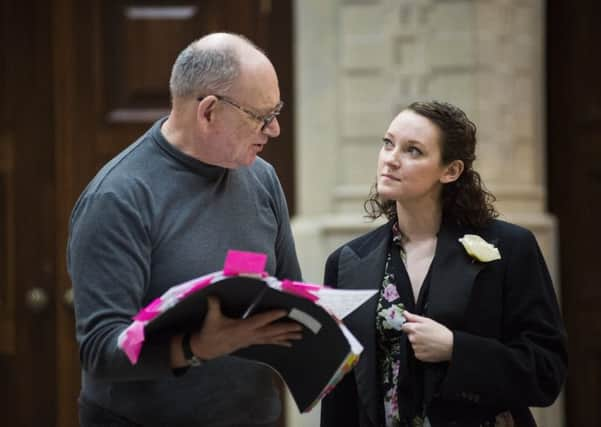Music preview: All change for Scottish Opera's Ariadne auf Naxos


But let’s backtrack a bit. Ariadne is, after all, hardly your average opera, with a far from straightforward storyline. Strauss and librettist Hugo von Hoffmansthal’s opulent creation is set in a historic country house, whose wealthy owner has commissioned both a serious opera and a frivolous, throwaway entertainment as his post-dinner, pre-fireworks shows. But with the meal running late, he demands that both should be performed simultaneously – with predictably aghast confusion from all the performers involved.
The opera’s pre-interval prologue is all about the hasty behind-the-scenes preparations, and the bickering and bitchiness between the high artists and the lowly entertainers. “We’re doing the prologue in English – we’ve commissioned a new translation,” explains McDonald. Why the change in language, only to revert to the original German after the interval? “There has to be an immediate connection with the audience here, it seems to me,” he explains. “It’s a bit like a farce, like Noises Off or something, and if the jokes are in German, the audience would be a beat behind.”
Advertisement
Hide AdStrauss and von Hoffmansthal originally conceived their lower-ranking entertainers as a commedia dell’arte troupe, but that’s another area where McDonald has different ideas. “I find the whole commedia dell’arte thing a little bit weak and twee,” he explains, “so I wanted it to be more like an alternative cabaret, burlesque, something more edgy. Once you’ve got over this very crazy first half, there’s a much more serene second half of the Composer’s opera itself – the actual Ariadne auf Naxos – which is very serious and very profound, with weird interruptions from the cabaret troupe. It’s crucial that these worlds clash, really clash. That’s the whole pleasure of Ariadne, isn’t it?”
With his gender-swapping of the Composer, is there a sense that McDonald is making women the focus of his production? It’s a suggestion borne out by another change: the imperious Major-Domo, in the original, the mysterious country house owner’s high-handed fixer, also becomes a woman, played by eminent actor Eleanor Bron. “I wanted to gear that role more towards a woman,” McDonald explains, “so that role will become the Party Planner. Strauss wrote extraordinarily and with great insight for women, and there’s a lot from women’s perspectives in the opera, so I did want to gear the production more towards women – but without making a big feminist statement.”
Strauss’s second big theme in Ariadne, McDonald feels, is one that’s relevant to us all. “The other side to this opera is of course: who calls the tune? That’s a particularly contemporary issue – who pays for art, and if they pay, what can they demand?”
His setting – a grand country house hosting a summer opera stage, well known across Europe – remains largely faithful to the original. Do we ever get to see its enigmatic owner, the person calling the shots? “I designed Ariadne once before, at the Bavarian State Opera in Munich, and for that production we did actually see the owner, who looked a bit like Louis XIV. But I’m not doing that any more. I think ultimately the owner is us – and, of course, as taxpayers, we’re ultimately the people who are paying for it anyway.” n
Scottish Opera’s Ariadne auf Naxos is at the Theatre Royal, Glasgow, on 22, 24 and 28 March, and at the Festival Theatre, Edinburgh, on 5 and 7 April, www.scottishopera.org.uk